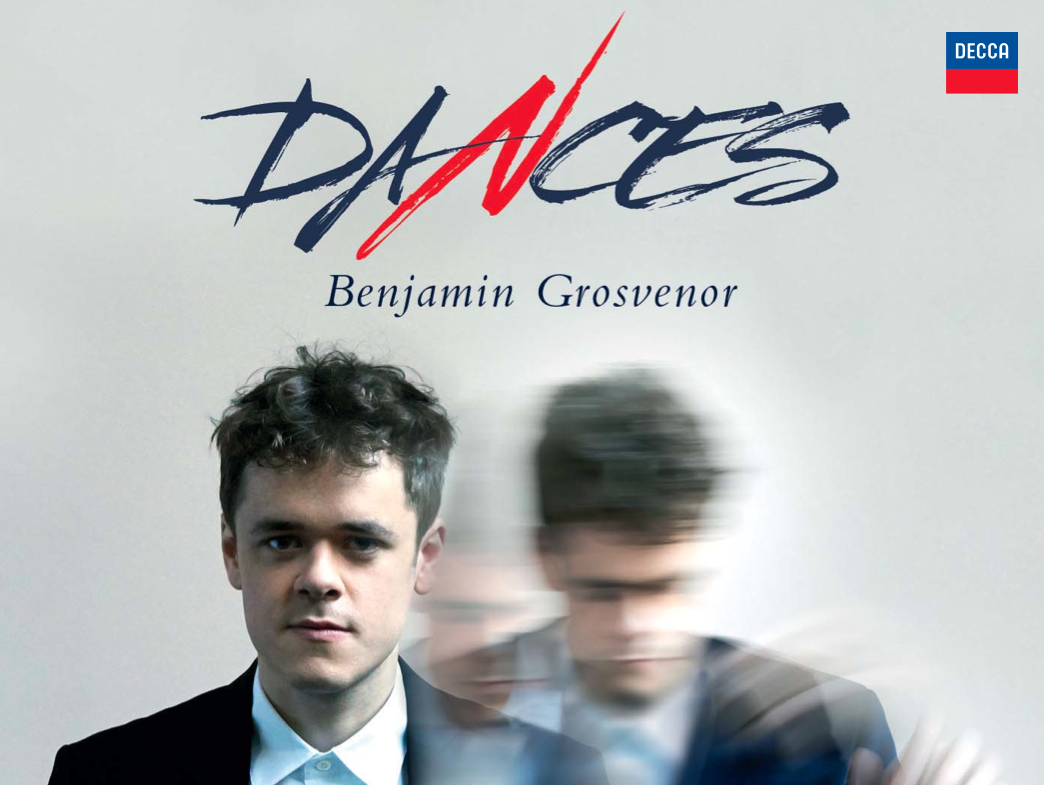Benjamin Grosvenor’s selection, simply entitled ‘Dances’, is lovingly
planned rather than random. Ranging from Bach to Morton Gould, there
are subtle reminders that, even if Chopin does not follow Bach ‘as the
night the day’, you still recall Chopin’s love of Bach. Early Scriabin
remembers Chopin, his Mazurkas written long before he developed or
regressed into an obsessive mysticism. Chopin, too, was central to
Granados’s inspiration (his Escenas románticas end with a graceful bow and tribute to Chopin called ‘Spianato’). Finally, the Schulz-Evler Arabesques on The Blue Danube, the Albeniz-Godowsky Tango and Morton Gould’s Boogie Woogie Etude – a free blossoming into a glorious liberation.
Having recently celebrated a disc largely devoted to one of Janáček’s
darkest utterances, it is with a spirit of uplift that I now find
myself listening to performances that are carried forwards on an
irresistible tide of youthful exuberance. With no need of the
international competition circuit to lift or lower his career, Grosvenor
bypasses that ever-controversial arena to give performance after
performance of a surpassing brilliance and character. However hard the
slog in the practice room (such dazzle and re creation result from
intense discipline), there is a sense of joyful release, of music-making
free from all constraint.
Grosvenor’s Bach (the Fourth Partita, the most substantial item on
the disc) is a vivid contradiction of a quaint, long-held view that Bach
was essentially an academic, once unaffectionately known as ‘the old
wig’, who provided useful contrapuntal fodder for exams. Such views long
ago toppled into absurdity and like, say, Schiff and Perahia (though
with an entirely fresh stance of his own), Grosvenor gives us Bach, our
timeless contemporary. What drama and vitality he finds as he launches
the Overture, what a spring – even swagger – in his step in the
Courante, what unflagging but unforced brio in the final Gigue. And then
you remember his Sarabande, where his pace and energy are resolved in a
‘still small voice of calm’. Dry-as-dusts may rattle their sabres but,
like Horowitz, who confounded the pundits with his crystalline
Scarlatti, Grosvenor creates his own authenticity, revelling in music of
an eternal ebullience and inwardness, and erasing all notion of
faceless sobriety.
This is followed by a wide but relevant leap to Chopin. The Op 22 Grande Polonaise
may pay tribute to Chopin’s early concert-hall glitter (his opening
salvo in the Etudes, Op 10, is a reworking of Bach’s first Prelude, also
in C major, from his ‘48’) but even here Chopin can reflect his
cherished memories. Grosvenor keeps everything smartly on the move (he
is the least sentimental of pianists), spinning the composer’s vocal
line in the introductory Andante spianato with rare translucency
and with decorations cascading like stardust. There is never a question
of attention-seeking, of ‘what can I do with this?’. Such things have no
place in Grosvenor’s lexicon and everything is as natural as breathing.
Textures, too, are as light as air, after a commanding summons to the
dance floor, and both here and in the more mature Op 44 Polonaise there
is an almost skittish erasing of all possible opacity. Again, detail is
as acute as ever, with flashing octaves complemented by a magically
sensitive central Mazurka and a sinister close, suggesting a dark
undertow to Chopin’s all-Polish defiance (for Schumann the Polonaises
were ‘cannons buried in flowers’).
Three Scriabin Mazurkas from his Op 3 remember Chopin with their
characteristic major-minor alternations, the Sixth with its gazelle-like
leaps followed by the Fourth and Ninth, alive with an already
distinctive voice. In Grosvenor’s hands the A flat Valse becomes one of
Scriabin’s most intoxicating creations and so, too, do Granados’s Valses poéticos.
And while there is nothing so specific as the above-mentioned term
‘spianato’, there is still a sense of a distant relation to Chopin.
Finally, the Schulz-Evler Arabesques on The Blue Danube, once
described as ‘sending fabulous spangles of sound spinning through the
air’ in its introduction, followed by Grosvenor’s seemingly inborn
elegance and sophistication in the waltz proper. The Albeniz-Godowsky
Tango may be less sultry and insinuating than some (I have Cherkassky’s
winking and teasing magic in mind) but Grosvenor’s cooler view is
exquisite in its own entirely personal way. Then on to a fizzing finish
in Morton Gould’s Boogie-Woogie Etude, and a headlong charge with still enough colour and variety to bring even the most staid audience to its feet.
Benjamin Grosvenor may well be the most remarkable young pianist of
our time. And for him, choosing from his already extensive repertoire
music for future recordings will surely be a labour of love. Decca’s
sound is excellent and this is a disc to prompt wonder and delight in
equal measure.(Gramophone)





No hay comentarios:
Publicar un comentario